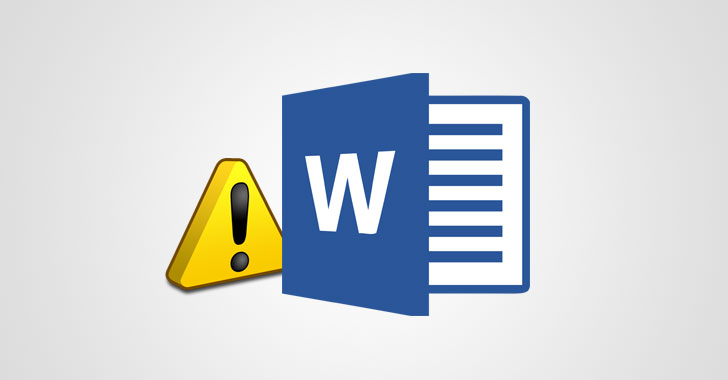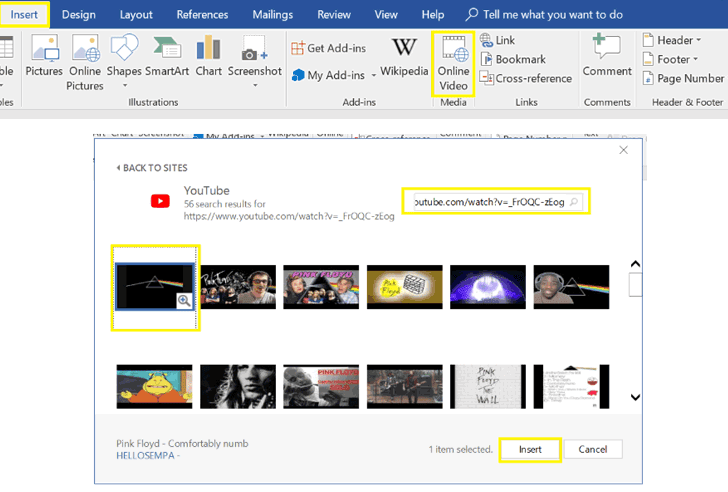October 29, 2018Mohit Kumar

Cybersecurity researchers have revealed an unpatched logical flaw in Microsoft Office 2016 and older versions that could allow an attacker to embed malicious code inside a document file, tricking users into running malware onto their computers.
Discovered by researchers at Cymulate, the bug abuses the ‘Online Video‘ option in Word documents, a feature that allows users to embedded an online video with a link to YouTube, as shown.
When a user adds an online video link to an MS Word document, the Online Video feature automatically generates an HTML embed script, which is executed when the thumbnail inside the document is clicked by the viewer.
ATTENTION: Click Here To Get Over $100,000 Money Transfer Through Bank Transfer Hackers!!!
ATTENTION: Get Your Hacked Western Union MTCN Transfer and Cash Out Over $2500 within minutes!!!
ATTENTION: Click Here For Your Blank/Cloned ATM Cards for ATM Cashout and Online Purchase!!!
Researchers decided to go public with their findings three months after Microsoft refused to acknowledge the reported issue as a security vulnerability.
How Does the New MS Word Attack Works?
Since the Word Doc files (.docx) are actually zip packages of its media
and configuration files, it can easily be opened and edited.

According
to the researchers, the configuration file called ‘document.xml,’ which
is a default XML file used by Word and contains the generated
embedded-video code, can be edited to replace the current video iFrame
code with any HTML or javascript code that would run in the background.
In simple words, an attacker can exploit the bug by replacing the actual
YouTube video with a malicious one that would get executed by the
Internet Explorer Download Manager.
“Inside the .xml file, look for the embeddedHtml parameter (under WebVideoPr) which contains the Youtube iframe code,” the researchers said. “Save the changes in the document.xml file, update the docx package with the modified XML and open the document. No security warning is presented while opening this document with Microsoft Word.”
Video Demonstration: MS Word Online Video Flaw
To prove the extent of the vulnerability, Cymulate researchers created a proof-of-concept attack,
demonstrating how a maliciously crafted document with an embed video,
which if clicked, would prompt user to run an embedded executable (as a
blob of a base64)–without downloading anything from the internet or
displaying any security warning when the victim clicks on the video
thumbnail.

The hack requires an attacker to convince victims into opening a document and then clicking on an embedded video link.
Cymulate researchers responsibly reported this bug, which impacts all
users with MS Office 2016 and older versions of the productivity suite,
three months ago to Microsoft, but the company refused to acknowledge it
as a security vulnerability.
Apparently, Microsoft has no plans to fix the issue and says its software is “properly interpreting HTML as designed.”
Meanwhile, researchers recommended enterprise administrators to block
Word documents containing the embedded video tag: “embeddedHtml” in the
Document.xml file, and end users are advised not to open uninvited email
attachments from unknown or suspicious sources.